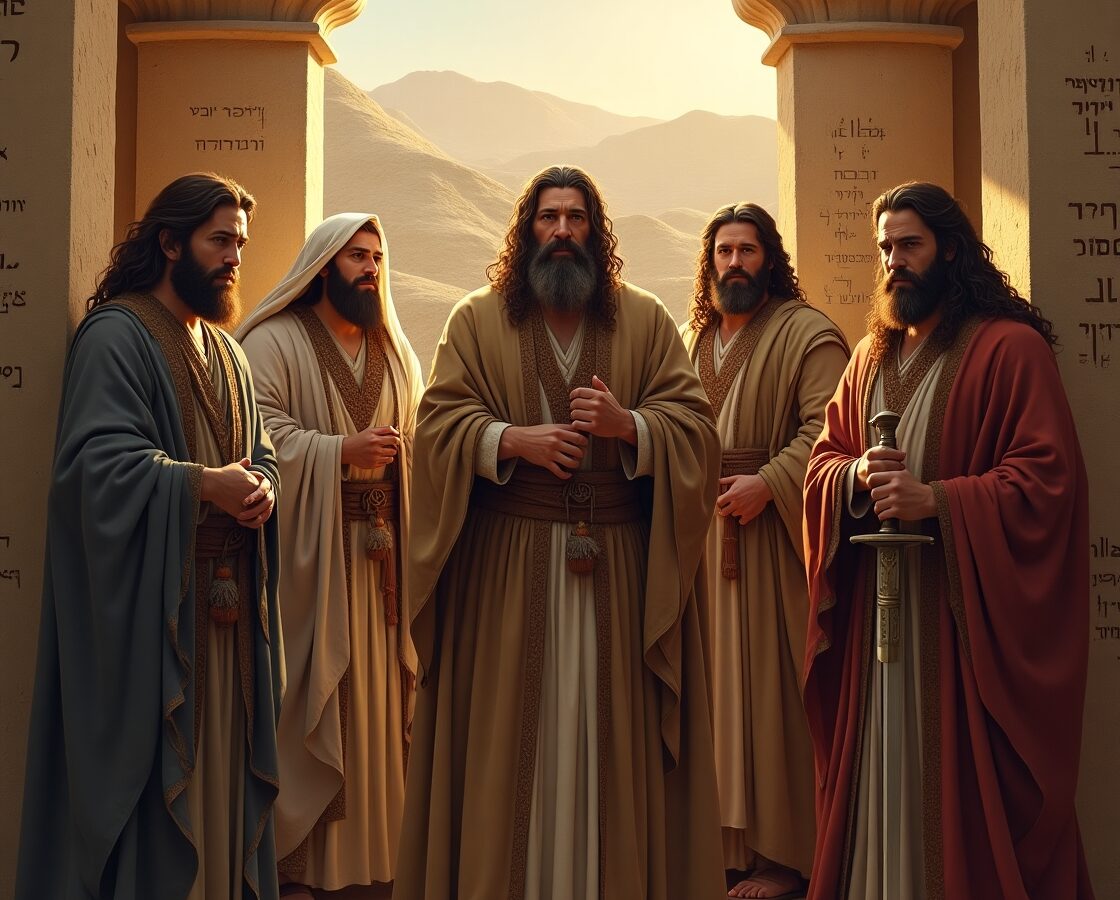Here’s a list of the Old Testament judges in chronological order, as described in the Book of Judges (and overlapping with 1 Samuel). Their leadership spans roughly 300 years (c. 1380–1050 BC) between Joshua’s conquest and the establishment of the monarchy under Saul.
1. Othniel
– Tribe: Judah
– Enemy Oppressed: Cushan-Rishathaim (Mesopotamia)
– Key Detail: First judge; delivered Israel after 40 years of oppression (Judges 3:7–11).
2. Ehud
– Tribe: Benjamin
– Enemy Oppressed: Eglon of Moab
– Key Detail: Assassinated King Eglon, leading to 80 years of peace (Judges 3:12–30).
3. Shamgar
– Tribe: Uncertain (possibly non-Israelite)
– Enemy Oppressed: Philistines
– Key Detail: Killed 600 Philistines with an oxgoad (Judges 3:31; 5:6).
Old Testament Kings Of Israel And Judah: In Chronological Order
4. Deborah (and Barak)
– Tribe: Ephraim (Deborah); Naphtali (Barak)
– Enemy Oppressed: Jabin of Canaan (Sisera’s army)
– Key Detail: Prophetess Deborah and Barak defeated Sisera with Jael’s help (Judges 4–5).
5. Gideon (Jerubbaal)
– Tribe: Manasseh
– Enemy Oppressed: Midianites
– Key Detail: Led 300 men to victory with torches and trumpets (Judges 6–8).
6. Abimelech
– Tribe: Manasseh (Gideon’s son)
– Role: Usurper king, not a true judge
– Key Detail: Killed his brothers; ruled violently for 3 years (Judges 9).
Old Testament Prophets: Who They Were, Their Messages And Relevance
7. Tola
– Tribe: Issachar
– Key Detail: Judged Israel for 23 years; little narrative detail (Judges 10:1–2).
8. Jair
– Tribe: Gilead (Manasseh)
– Key Detail: Led 22 years; had 30 sons who rode donkeys (Judges 10:3–5).
9. Jephthah
– Tribe: Gilead (outcast son)
– Enemy Oppressed: Ammonites
– Key Detail: Made a rash vow leading to his daughter’s sacrifice (Judges 11–12:7).
10. Ibzan
– Tribe: Bethlehem (Judah or Zebulun?)
– Key Detail: Judged 7 years; had 30 sons and 30 daughters (Judges 12:8–10).
11. Elon
– Tribe: Zebulun
– Key Detail: Judged 10 years; minimal narrative (Judges 12:11–12).
12. Abdon
– Tribe: Ephraim
Old Testament Prophets: Who They Were, Their Messages And Relevance
– Key Detail: Judged 8 years; had 40 sons and 30 grandsons (Judges 12:13–15).
13. Samson
– Tribe: Dan
– Enemy Oppressed: Philistines
– Key Detail: Nazirite with supernatural strength; fell due to Delilah (Judges 13–16).
14. Samuel (Transition to Monarchy)
– Tribe: Ephraim/Levi (raised in Shiloh)
– Role: Last judge and prophet; anointed Saul and David (1 Samuel 1–16).
Key Notes:
– Cycle of Judges: Israel’s pattern of sin → oppression → repentance → deliverance (Judges 2:16–19).
– Minor vs. Major Judges:
– Major: Deborah, Gideon, Jephthah, Samson (detailed narratives).
– Minor: Shamgar, Tola, Jair, Ibzan, Elon, Abdon (brief mentions).
– Purpose: Judges highlights humanity’s need for a righteous king, fulfilled in Christ.
Why This Matters Today
The judges’ stories reveal God’s faithfulness despite human frailty. They remind us that true deliverance comes not through human strength but reliance on God (Psalm 20:7).
These judges were raised by God to deliver Israel from oppression, ruling in various regions before the establishment of the monarchy.
The Fruit Of The Spirit: Cultivating Christlike Character
Last modified: May 8, 2025






